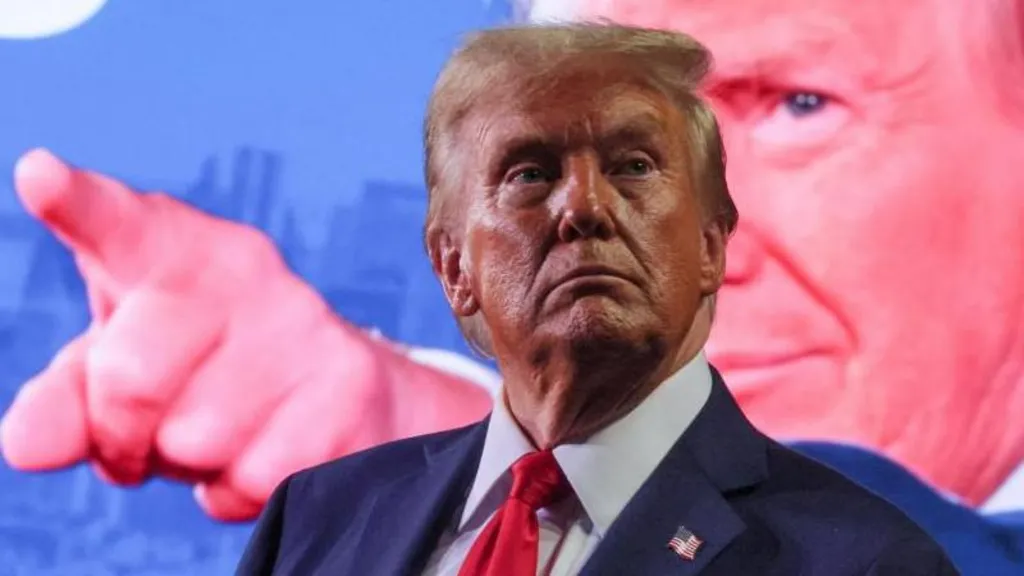
Predicting the actions of U.S. President-elect Donald Trump upon his return to the White House is no simple task. However, one thing is clear: his preference for transactional politics, populist gestures, and skepticism toward patient, principled diplomacy is unlikely to change. This presents both potential opportunities and significant risks for Africa.
When President Obama was in office, his administration worked closely with the African Union (AU) to reform United Nations (UN) rules regarding peacekeeping funding. The goal was to establish a more reliable and robust financial structure for African-led peacekeeping missions. Through collaboration with multilateral organizations, the AU developed an “African peace and security architecture” aimed at preventing conflicts, facilitating mediation, and carrying out peacekeeping efforts.
But under Trump’s first administration, those plans lost momentum. The push for more proactive peacekeeping efforts stalled, and several UN and AU missions, including those in Sudan’s Darfur region and Mali, were closed or scaled back. The Biden administration did not reverse this trend, and peacekeeping initiatives remained largely underfunded and sidelined.
For decades, the idea of “liberal peace” — the notion that peace, democracy, justice, and open markets go hand in hand — was central to U.S. foreign policy. The AU, however, embraced multilateralism but resisted being lectured on human rights or democracy by Western powers. This friction became evident in debates over military interventions like the 2011 NATO-led operation in Libya. Many African leaders found Trump’s blunt approach and results-driven foreign policy refreshing.
Trump’s “America First” philosophy and transactional approach were evident in his dealings with the Middle East and Africa. He shifted away from multilateral diplomacy in favor of bilateral deals with key allies like Egypt, Morocco, Saudi Arabia, the UAE, and Israel. A notable achievement was the Abraham Accords, brokered between Israel and several Arab nations, which Trump heralded as a major diplomatic success.
Trump’s stance on Africa also included a sharp focus on limiting China’s influence on the continent. His administration’s approach was characterized by a reluctance to deploy U.S. soldiers and a preference for engaging with African nations through deals rather than extensive diplomatic efforts. This led to some controversial moves, such as when Trump, at the request of Egypt’s President Abdul Fattah al-Sisi, engaged in mediation over the Grand Ethiopian Renaissance Dam, which triggered tensions between Egypt and Ethiopia over water rights.
Trump’s support for autocrats was a key aspect of his foreign policy. This was evident when the Trump administration facilitated Sudan’s normalization of ties with Israel in exchange for lifting sanctions. This deal was part of a broader strategy in which the U.S. leveraged its influence to secure diplomatic agreements with nations like Sudan, often bypassing multilateral institutions in favor of direct negotiations.
As the Trump administration’s first term progressed, it became clear that the “liberal peace” model was no longer a guiding principle. Instead, Trump embraced the idea of “illiberal peace,” which focused on autocrats striking private deals, sometimes at the expense of democratic values. In the case of Sudan, for instance, the peace agreement was framed as a success, even as the country faced an economic crisis and its democratic experiment faltered.
Looking ahead, if Trump returns to power, it is likely that his second administration will continue with this transactional approach to Africa. His administration may broker more deals like those with Israel, focusing on tangible outcomes such as trade agreements or military alliances rather than long-term investments in democratic governance or multilateral peacebuilding efforts.
In regions like Sudan and Ethiopia, where political instability and violence are widespread, Trump’s methods could lead to short-term political deals but little sustainable peace. Sudan, currently experiencing its largest war in decades, remains a critical test case. Arab powers like the UAE and Egypt play a significant role in the conflict, backing different sides. These alliances, while strategically important, complicate efforts toward genuine peace. If Trump pursues deals with these powerbrokers, it may create openings for negotiation but also risks deepening existing divides.
Similarly, Ethiopia’s relations with Egypt and the UAE, as well as tensions in the Horn of Africa, may shift if Trump engages these actors directly. The Biden administration’s policy in the region was largely ineffective in advancing multilateral peace efforts, and Trump could either exacerbate these conflicts or, in an unlikely scenario, facilitate some form of diplomatic resolution by appealing to autocratic leaders.
However, Trump’s lack of interest in multilateral diplomacy also means that the risks of a broader conflict, particularly in the Horn of Africa, are heightened. The situation in places like Somalia and the Sahel region, where U.S. forces are engaged in counterterrorism operations, could be destabilized further as the U.S. pulls back from its military commitments and relies on regional actors or private contractors.
Trump’s policies, if re-implemented, could introduce new dynamics in West Africa, where Russian influence through groups like the Wagner Group is increasing. His relationship with Moscow could lead to more complicated geopolitical alignments, particularly with nations like Morocco, which has its own ambitions for influence in the region.
In the coming years, African leaders will have to navigate these complexities, balancing the need for cooperation with a U.S. administration that is unlikely to prioritize multilateral peacebuilding efforts. The AU’s principles of collective security and norm-based diplomacy face an uncertain future under Trump’s transactional approach.
As the 2025 AU leadership election approaches, the challenges for Africa’s peace and security architecture will be more pronounced. The region will need to find ways to adapt to a world where multilateralism is increasingly sidelined in favor of direct deals, and where peace may come at the cost of democratic values and long-term stability.







